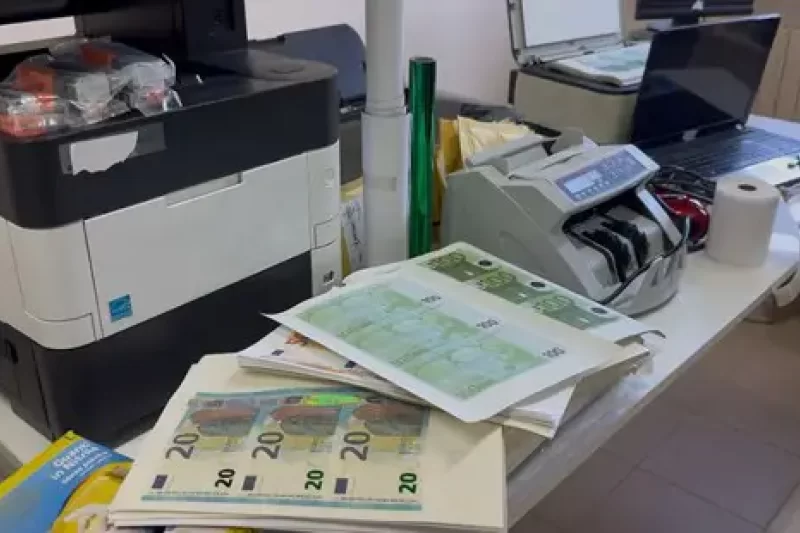3 Counterfeiters Arrested in Italy for Forging Banknotes Worth EUR 180 000
Members of a criminal group involved in the production of high-quality counterfeit euro banknotes have been arrested in a cross-border operation supported by Europol. The investigation was led by the Italian Carabinieri and also involved authorities from Austria, Belgium, France, Germany and Spain. Investigators believe the criminal group counterfeited banknotes worth an estimated EUR 180 000.
The operation took place on 7 April and resulted in:
- 3 suspects arrested in Italy
- 600 counterfeit euro banknotes seized in denominations of EUR 10, 20, 50, and 100 for a total value of around EUR 50,000
- Print shop producing counterfeit euro banknotes dismantled
- Illegal mint (stamping press) dismantled
Cryptocurrency payments and shipping through postal service
The investigation, which began in 2024, revealed that a criminal organisation operating in southern Italy was distributing large quantities of counterfeit EUR 10, 20, 50 and 100 banknotes across the eurozone. Austria, Belgium, France, Germany and Spain received most of the fake currency.
The criminal group showed a high level of technical expertise and internal organisation. The leader of the gang sold the counterfeit banknotes via an online messaging platform, with buyers making payments in cryptocurrency. Once the payments were confirmed, the fake banknotes were sent through the regular postal service.
Investigators also discovered that the same criminal group had established an illegal 2-euro coin mint in northern Italy. Authorities dismantled the illegal mint during the operation, along with a printshop for counterfeit euro banknotes in southern Italy.
Europol’s role in the fight against counterfeiting
During the investigation, Europol facilitated the exchange of information and financed and coordinated several operational activities. Europol’s analysts also provided analytical support to identify the country where the banknotes were distributed.
On the action day, Europol sent three experts to Italy to provide technical support and cross-check the operational information against Europol’s databases and the European Central Bank’s systems.
Criminal finances are one of the common elements of the key threats identified in Europol’s EU Serious and Organised Crime Threat Assessment (EU-SOCTA). These threats are progressively destabilising the EU and are nurtured online, as criminal networks gradually exploit digital and online infrastructures, including messaging platforms, as in this operation.













